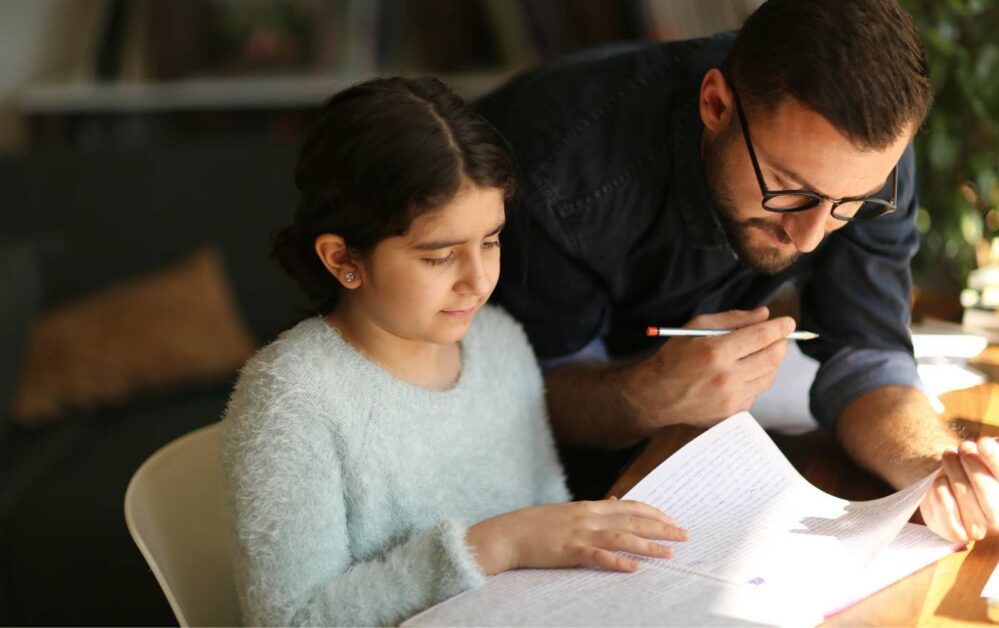
25 Oct Homeschooling in New York State: A Guide for Parents
HOMESCHOOLING IN NEW YORK STATE:
A Guide for Parents

Homeschooling is a growing educational option for parents in New York State who seek a personalized and flexible approach to their children’s education. Whether you’re considering homeschooling as an alternative to traditional schooling or because of recent changes in the educational landscape, this detailed handbook will assist you in navigating the intricacies of homeschooling in the Empire State.
Understanding New York Homeschooling Regulations
Before you embark on your homeschooling journey, you must grasp the legal requirements in New York State. The state has specific regulations that must be followed. To ensure compliance with New York State homeschooling laws, it is essential to follow these specific requirements:
- Submit a Letter of Intent: You must submit a Letter of Intent by July 1st or within 14 days of establishing your new homeschool program during the school year. We recommend emailing your notice of intent to [email protected] (for homeschooling letters of intent only). For all other inquiries and document submissions, please use [email protected].
- Submit an Individualized Home Instruction Plan (IHIP): By August 15th, or within four weeks of obtaining the school district’s IHIP form, you should submit an IHIP. This plan should include a list of your syllabi, curriculum materials, method of instruction, dates for submitting quarterly reports, and details about the instructor.
- Meet Attendance and Subject Requirements: Maintain daily/hourly attendance records to demonstrate that your child meets the “substantial equivalent” of 180 days per year. For grades 1-6, this translates to an hourly attendance average of 900 hours, approximately 20 hours per week of instruction. The requirement for grades 7-12 is 990 school hours per year.
- File Quarterly Reports: Regularly file quarterly reports with the district superintendent, including your quarterly instructional hours, descriptions of the subject material covered, and corresponding grades or evaluations for each subject.
- Assess the Student: Evaluate your student using a written narrative or a standardized test. Grades 1-3 can choose either assessment method, while grades 4th-8th are required to take a standardized test at least every other year. In high school, standardized testing is mandatory every year.
By following these procedures, you may ensure that your homeschooling program conforms to New York State’s homeschooling rules.
New York Individualized Home Instruction Plan (IHIP)
Section 100.10(c)(1) of the Regulations of the Commissioner of Education mandates that the local school district furnish parents with a designated form for the submission of an Individualized Home Instruction Plan (IHIP). Nevertheless, some school districts distribute documents that request additional information beyond the regulation’s specifications. In such cases, HSLDA suggests employing the IHIP form we crafted for compliance.
Please note that your local school district (LSD) will be sending you an individualized home instruction plan (IHIP) to complete. If your child is diagnosed with autism and you wish to use some of the ABA programs being conducted at your child’s school, you will need to list that in the curriculum portion of the IHIP. It is up to the LSD to determine if that programming is substantially equivalent and adheres to Part 100.10 of the Commissioner’s Regulations for home instruction.

Attendance Requirements
Each child is required to participate in instruction as outlined below:
1. The homeschooling program must provide the equivalent of 180 days of instruction during each school year.
2. For students in grades 1 through 6, the total cumulative hours of instruction should amount to 900 hours per year. Meanwhile, for students in grades 7 through 12, the cumulative hours of instruction should be 990 hours per year.
3. Absences will be allowed under the same conditions and policies established by the school district for its enrolled students.
4. Parents are responsible for maintaining records of their child’s attendance and must be prepared to furnish them to the school district upon request.
5. Instructional sessions outside the parents’ primary residence must occur in a building that complies with local building codes.
6. In exceptional circumstances, such as a State of emergency, the Governor declares, according to an Executive Order for the COVID-19 crisis, a student may be exempted from the required number of instructional days and hours. This exemption applies if the home instruction program cannot provide the prescribed instructional days and hours but maintains continuity of learning for the student.
Subject Requirements
The subject requirements are outlined below:
1. Grades K–12
- Patriotism and citizenship
- About substance abuse
- Traffic safety (including bike safety)
- Fire safety
And at least once before grade 9
**US and New York history and constitutions
2. Grades 1–6
Arithmetic, Reading, Spelling, Writing, English, Geography, US History, Science, Health, Music, Visual arts, Physical education
3. Grades 7–8
English (2 credits), History and geography (2 credits), Science (2 credits), Mathematics (2 credits), Art (½ credit), Music (½ credit), Physical education (on a regular basis), Health Education (on a regular basis), Practical arts (on a regular basis), Library skills (on a regular basis)
4. Grades 9–12
Mathematics (2 credits), English (4 credits), Social studies, including American history, participation in government, and economics (4 credits), Science (2 credits), Art or music (1 credit), Health (½ credit), Physical education (2 credits), Electives (3 credits).
NOTE: 1 credit is equal to 108 hours of education.

Quarterly Reports
Quarterly reports, to be submitted by the dates specified in the IHIP, must include the following information:
1. The total number of instructional hours completed during the respective quarter.
2. A comprehensive description of the content covered in each subject listed in the IHIP.
3. Either a graded assessment for the child in each topic or a written narrative assessing the youngster’s progress.
4. In cases where less than 80 percent of the prescribed course materials, as outlined in the IHIP, have been covered in any subject during that quarter, a written explanation is required.
Parents have the flexibility to choose any format when submitting quarterly reports.
Students Assessment
An annual assessment is a mandatory requirement every year. For students in grades 1-3, two options are available:
- standardized test
- written narrative evaluation
For students in grades 4-8, standardized testing is obligatory at least once every two years, with the written narrative evaluation serving as an alternative in the years when standardized testing is not used. For example, you could choose a written narrative assessment in grade 4 but must opt for a standardized test in fifth grade, and so forth. In high school, standardized testing is required annually.
Standardized tests can be administered in various settings, including the local public school or a registered nonpublic school. With the superintendent’s consent, you can arrange for the test to be conducted at your home or another suitable location, either by a New York–certified teacher or another qualified individual (including a student’s parent). To secure consent, you need to inform the superintendent in your third quarterly report of the test you intend to use and the identity of the test administrator.
To indicate satisfactory growth, your student’s composite score should be above the 33rd percentile or reflect at least one academic year of growth compared to a test administered in the previous school year.
You have the option to select from the following approved tests:
1. Iowa Test of Basic Skills
2. California Achievement Test
3. Stanford Achievement Test
4. Comprehensive Test of Basic Skills
5. Metropolitan Achievement Test (retired)
6. A State Education Department Test, or
7. Another State Education Department-approved test is the Personalized Achievement Summary System (PASS).
A certified teacher, a peer group assessment panel for home education, or another individual, with the consent of the local superintendent, can conduct written narrative evaluations. Like the standardized test, you can secure implied assent by stating in your third quarterly report to the superintendent that you plan to submit a written narrative evaluation, along with the details of the evaluator.

Conclusion: Homeschooling in New York State
Homeschooling in New York State represents a flexible and increasingly popular educational choice for parents seeking a personalized approach to their children’s learning journey. This guide underscores the importance of understanding and complying with the state’s homeschooling regulations, which involve the submission of a Letter of Intent, an Individualized Home Instruction Plan (IHIP), and regular assessments. Parents are encouraged to choose an approach that aligns with their child’s learning style and goals, ensuring a rich and adaptable educational experience.
Homeschooling in New York empowers parents to provide a high-quality education tailored to their child’s needs, fostering a love of learning and individualized growth. It is a pathway that allows families to confidently navigate the educational landscape and create well-rounded, self-directed learners poised for success in the future.
Chat with Themba Tutors today.
Our dedicated homeschooling private tutors bring learning support to your home.
Call: (917) 382-8641, Text: (833) 565-2370
Email: [email protected]
(we respond to email right away!).
Craig Selinger
Latest posts by Craig Selinger (see all)
- Psychotherapy and Support Services at Cope With School NYC - April 12, 2024
- NYC Parents of Teens Support Group - April 8, 2024
- Here I Am, I Am Me: An Illustrated Guide to Mental Health - April 4, 2024


No Comments